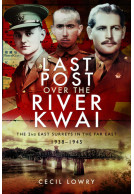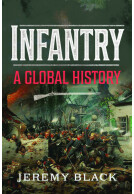Frank Pantridge MC (Paperback)
Japanese Prisoner of War and Inventor of the Portable Defibrillator
Imprint: Pen & Sword Military
Pages: 176
Illustrations: 16 black and white illustrations
ISBN: 9781399002929
Published: 2nd March 2022
(click here for international delivery rates)
Order within the next 11 hours, 52 minutes to get your order processed the next working day!
Need a currency converter? Check XE.com for live rates
| Other formats available | Price |
|---|---|
| Frank Pantridge MC eBook (9.0 MB) Add to Basket | £6.99 |
Countless thousands of men and women around the world have good reason to be thankful that Frank Pantridge survived three and a half years of brutal Japanese captivity. Had he not, they too would in all probability have died too.
Taken prisoner at the fall of Singapore in February 1942 Frank was forced to endure appalling deprivation. Conditions on the Burma railway were notorious, and the death rate was horrendous.
On returning to Belfast in late 1945 Frank specialised in heart diseases. Convinced that the prompt application of electric shock after cardiac arrest could save lives he reasoned that ventricular defibrillation should be applied not just in hospitals but in the workplace, the home, the street or ambulance.
His first ‘portable’ defibrillator was produced in 1965 and over the intervening years evolved into the compact units so prevalent today. The importance of Pantridge’s invention was well demonstrated when US President Lyndon B Johnston’s life was saved in 1972.
This stirring biography reveals the full story of a remarkable man who survived against the odds to save countless lives.
"This book is a good read, nicely illustrated, and a reminder of how much is owed this remarkable man."
Hektoen International Journal
Read the review here
While reading this book, one thing became very clear - Frank was not afraid to speak his mind. This got him into trouble on many occasions, when he used the words “with all due respect” this was not what he meant at all. This book presents his story as a person rather than a great man which makes it all the better for that approach.
Armorama
Read the full review here
Article: ‘At The Heart Of Action’ - words by Ivan Little
Belfast Telegraph, 15th August 2020
Two page article feature: 'Cecil launches book on the life of Professor Frank Pantridge'
Down Recorder, 26th August 2020
This is a thoroughly brilliant story about a man who lets admit could have given up after what he endured because of the Japanese, but no, he survived that and when returning home he fought back to come up with an invention that has gone on to help millions survive something that could have killed them. I enjoyed reading this book and Frank really does seem to have been a decent bloke and in a way his story echoes what happens to many men in that although they have to suffer great hardship and treatment, they come through that and then go on to create or do even better things that can have a great impact on our lives. This is a pleasant a revealing read, very clear and concise from the author Cecil Lowry. Towards the end of the book there is a nice little section where his university compliments Frank Pantridge, his friends say what they felt about him and then even some people which survived due to his invention. I thought this was a nice touch to book and really endeared you to the man. A certain 5 star book.
UK Historian
★★★★★
Read the full review here
I was privileged to work, at one time in my career, in the civil service, with a man who had been a part of the harrowing and degrading episode in WW2 that saw the building of the Burma railway. He would never talk about his experiences, and was to some extent a figure of fun where I worked; but I befriended him and respected him, and was greeted every day with a cheery wave. They had all but destroyed him, and he worked as a labourer at the Water Research Centre in Stevenage. I daresay people like Frank Partridge would have understood his reticence to reminisce. Cecil Lowry's book describes a man who, like my labourer friend, survived against all the odds, only Partridge was a man whose brain and mind also survived. A fascinating and moving story.
Books Monthly
This excellent little volume is another from the 'Pen and Sword' stable, and tells the story of the life of James Francis Pantridge CBE MC MD DSc DMEDSc FRCP FRCPI FACC from his birth in 1916 to his death in 2004. THis man is not well known to the general public, and never received a Knighthood or other Honour, which is a terrific shame, considering he invented the portable defibrillator, which has saved countless lives in the fifty years since he did so.
Army Rumour Service (ARRSE)
It's written in a clear style and the tale rattles along with chapters on his early years, schooling, education, early career, Army Service, Captivity in Singapore and experience thereafter, and his later life as a Cardiac specialist. I really enjoyed the way the book is structured and written, and finished it in two sittings. There is a LOT of information here, particularly about the battles during the fall of Singapore and the decisions taken before and during the campaign.
I particularly liked the Appendices, which no-one usually reads. The first is his Obituary, written by a colleague from Queen's University Belfast, the second is a collection of memories by people who knew him, his nephew, Lady Mary Peters the Olympian, the former Mayor of Lisburn, and the third a short list of famous people whose lives have been saved by a Defibrillator. It would be impossible to list all the names of people who are still alive, or who lived longer, because of his invention and tenacity in persuading health authorities and Governments to deploy ever smaller and more usable defibrillators throughout the first world. Given that during the 1970s the DHSS was insisting that the use of defibrillators had absolutely no effect on survival rates from heart problems, and there was no need to waste money on putting them anywhere other than Coronary Care Units, I can perhaps begin to understand why no appearance on the Honours List arrived for a man who was so insistent and driven to probe them wrong!
The book's author is the son of a FEPOW, and his sympathy for those unfortunate men shines through the sections on that part of Franks life. This is his fourth book, and having read this one, I shall certainly seek out the other three from my local library.
Read the full review here
It is a story that I would never tire of rereading and in this case, the story of Frank Pantridge, with everything he got after returning from hell says a lot about the temper of this man, a great of our times. Thanks to Cecil Lowry for making many rediscover him with his book.
On The Old Barbed Wire
Read the full review here
About Cecil Lowry
Born two and a half years after the end of the war with Japan, Cecil Lowry is the son of Hugh Lowry, who was a Far Eastern Prisoner of War (FEPOWs).
After a career in Sports management he retired as Assistant Director of Sport at the University of Manchester in 2002 to concentrate on writing. This is his third book, following successes with No Mercy from the Japanese (with John Wyatt, Pen and Sword, 2008), Last Post over the River Kwai (Pen and Sword, 2018) and Two Years of Tenko, Life as a 16 year old in a Japanese Prisoner of War Camp (2015).
Cecil lives in Stockport and has two sons and two grandchildren who may be unique in having two great-grandfathers who were FEPOWs.

















